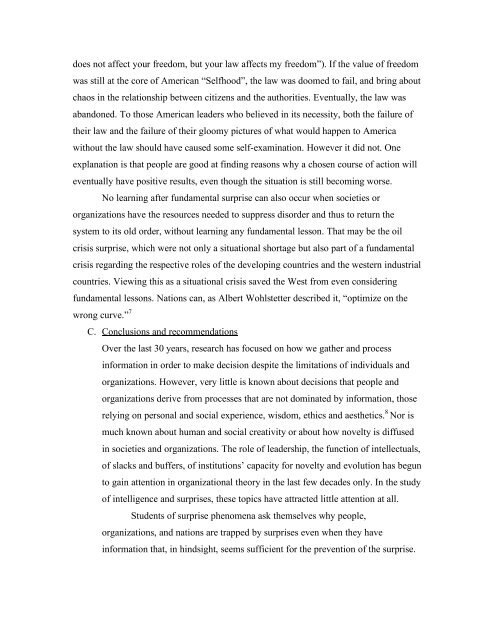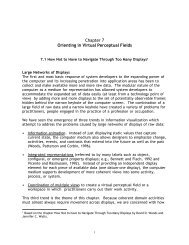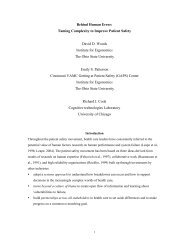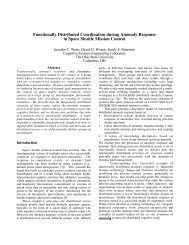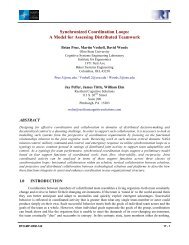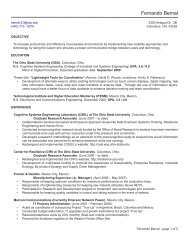Fundamental Surprises Zvi Lanir Decision Research 1201 Oak ...
Fundamental Surprises Zvi Lanir Decision Research 1201 Oak ...
Fundamental Surprises Zvi Lanir Decision Research 1201 Oak ...
- No tags were found...
You also want an ePaper? Increase the reach of your titles
YUMPU automatically turns print PDFs into web optimized ePapers that Google loves.
does not affect your freedom, but your law affects my freedom”). If the value of freedom<br />
was still at the core of American “Selfhood”, the law was doomed to fail, and bring about<br />
chaos in the relationship between citizens and the authorities. Eventually, the law was<br />
abandoned. To those American leaders who believed in its necessity, both the failure of<br />
their law and the failure of their gloomy pictures of what would happen to America<br />
without the law should have caused some self-examination. However it did not. One<br />
explanation is that people are good at finding reasons why a chosen course of action will<br />
eventually have positive results, even though the situation is still becoming worse.<br />
No learning after fundamental surprise can also occur when societies or<br />
organizations have the resources needed to suppress disorder and thus to return the<br />
system to its old order, without learning any fundamental lesson. That may be the oil<br />
crisis surprise, which were not only a situational shortage but also part of a fundamental<br />
crisis regarding the respective roles of the developing countries and the western industrial<br />
countries. Viewing this as a situational crisis saved the West from even considering<br />
fundamental lessons. Nations can, as Albert Wohlstetter described it, “optimize on the<br />
wrong curve.” 7<br />
C. Conclusions and recommendations<br />
Over the last 30 years, research has focused on how we gather and process<br />
information in order to make decision despite the limitations of individuals and<br />
organizations. However, very little is known about decisions that people and<br />
organizations derive from processes that are not dominated by information, those<br />
relying on personal and social experience, wisdom, ethics and aesthetics. 8 Nor is<br />
much known about human and social creativity or about how novelty is diffused<br />
in societies and organizations. The role of leadership, the function of intellectuals,<br />
of slacks and buffers, of institutions’ capacity for novelty and evolution has begun<br />
to gain attention in organizational theory in the last few decades only. In the study<br />
of intelligence and surprises, these topics have attracted little attention at all.<br />
Students of surprise phenomena ask themselves why people,<br />
organizations, and nations are trapped by surprises even when they have<br />
information that, in hindsight, seems sufficient for the prevention of the surprise.


